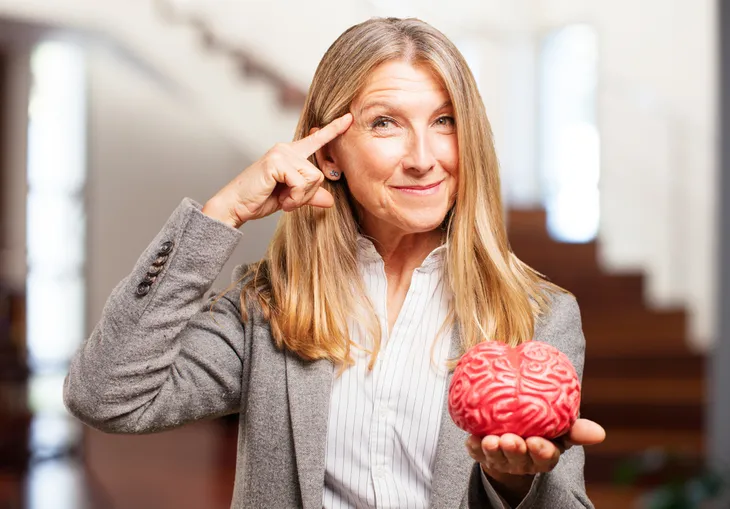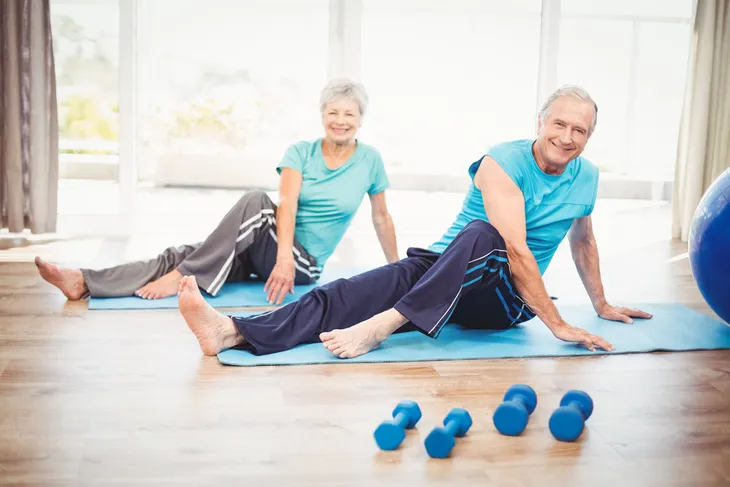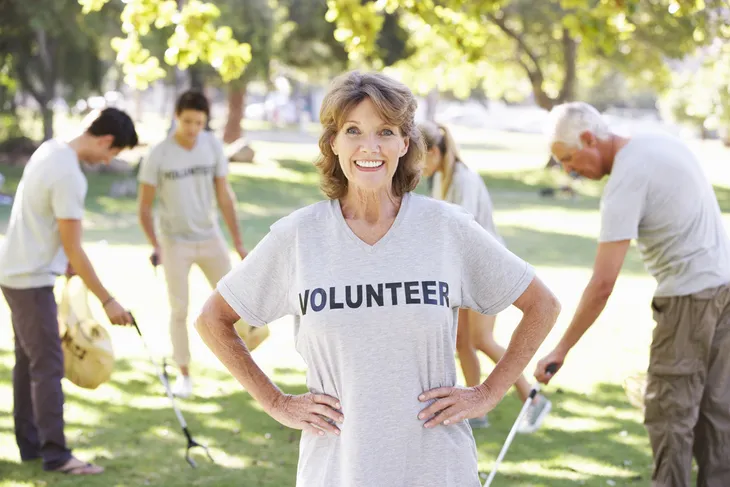If you’re in your golden years, you’ll want to improve the quality of your life as much as possible. The brain is a good place to start! Your brain function significantly impacts your ability to participate in activities like spending time with your grandchildren and having fun with friends. Not only that but you also want to make the most of your retirement, and you need to keep your brain sharp to do it.
How can you improve your mental functioning? It’s surprisingly simple to do, and it only takes a few minutes each day. Try out the following activities and watch your focus and concentration soar.
Want senior content delivered straight to your inbox? Sign up for our exclusive email list and receive articles and news on diet & nutrition, fitness, and mental health dedicated specifically to our senior audience!
Do Mental Math
Do you use your phone as a calculator at the grocers? If so, start using your noggin instead! You can use tricks like the “five times a number” trick to help you make the process less frustrating. Plus, you’ll get even savvier at knowing you’re finding a bargain when you calculate percentages mentally.
Quiz yourself during daily activities, too. For example, if you’re driving through your neighborhood and you spot a home for sale, see if you can mentally gauge what year it was built by the appearance and your knowledge of the area. Then, try to calculate how much the seller will earn if they find a buyer willing to pay their asking price.
Learn a New Language
Thanks to the wonders of technology, you can learn a new language in the privacy of your home with ease. You can use a host of language-learning apps to help build fluency quickly. If you want to meet new people and further your studies, online connection tools enable you to find other learners for study groups near you.
You can also use this tip to make a new friend. You can join language exchange programs and find a pen pal or chat buddy in your new tongue. Who knows? If you ever get a chance to travel abroad, perhaps you can meet.
Get Moving During Commercial Breaks
Most experts recommend about 150-minutes of moderate exercise most days per week — approximately 30-minutes a day. They also recommend that you strength-train at least twice per week. However, no one said you have to hit the gym for that long. You can sneak in exercise while you watch TV during commercial breaks. Challenge yourself to see how many biceps curls with light hand weights or squats you can perform before your show returns.
Don’t overlook household items that you can use as gym equipment. Cans of vegetables or soup make great light hand weights — they may prove more comfortable to grip if closing your fingers too tightly causes pain. Do you have a two-or-more story home? Use your stairwell to perform calf raises and single-legged squats. (Here are some At Home Exercises for Seniors).
Breathe Deeply and Stretch
Yoga is a fantastic tool for keeping your body limber and your mind sharp. If you’ve never taken a yoga class before, seek courses that welcome beginners or seniors at your local fitness facility or community center. If you’ve hit the mats in the past, you can safely practice at home for a few minutes each day, perhaps when you wake up and before turning in for the night. Try some of the best poses for seniors to keep yourself strong.
Maybe you’ve done yoga for years, and you’re ready for a change. Why not consider taking a sky or aerial yoga class? The straps eliminate pressure on your joints from standing and enable you to master challenging poses that prove impossible on land.
Get in the Water
Exercise facilitates the flow of oxygen-rich blood to the neurons of your brain. However, if you have arthritis or another chronic pain condition, you might find moving about on land painful. Try aquatic exercise instead. The water not only supports much of your body weight, but it also improves your blood circulation through pressure. Plus, you won’t get all sweaty, so you can seamlessly transition from the gym to tea with a friend!
You can do anything from swimming laps to lifting weights in the pool. Walking in water ups the cardio component, since you have to push against the resistance of the liquid to make progress. You can find inexpensive foam water weights at many retailers, and some gyms feature these amenities for classes and member use, too.
Play With Your Grandkids
Did you know that it’s not only a blast to play with the grandkids, it also boosts your cognitive ability by increasing the flow of blood and endorphins? It doesn’t matter if you play a lively game of tag or sit together to do a word search. You’re deepening your bond and keeping your brain sharp.
Think back to the games you enjoyed as a child. Playing Red Light, Green Light gets your body up and moving, which transports oxygen to your brain. It also challenges you to react to directions at a second’s notice, which is a powerful technique for keeping your response time sharp.
Meditate
Meditation helps break the cycle of negative or racing thoughts by returning your awareness to the present moment. You can find a score of free meditation videos for your listening pleasure online. It doesn’t matter if you only spend five minutes per day or participate in a longer session. Bathing your brain in positive messages and improving your focus will spill over into daily life.
To begin meditation, find a place where you won’t be interrupted. Sit quietly and comfortably, and focus your awareness on your breath. Inhale for a count of four, pause, then exhale for a longer count. If you notice your mind starts to wander, observe your thoughts neutrally. Then, return your awareness to your breathing once more.
Eat Foods Rich in Omega-3s
Eating foods that are rich in omega-3 fatty acids can help preserve neurological function. Several studies indicate that neurological function declines significantly in animals that researchers deprive of these vital nutrients. Once they reintroduce omega-3s into the diets of the laboratory animals, their symptoms improve.
You can find these healthy fats in many nuts and seeds, like chia and hemp. Why not start your day the healthy way with a healthy chia and hemp seed smoothie with banana and kale? Kale is an all-around superfood, and the banana adds both sweetness and potassium — a vital nutrient for cardiovascular health.
Take a Magnesium Supplement
Magnesium deficiencies can disrupt your mood and cause numerous unpleasant physical changes. If you feel depressed as circumstances in your life change, try getting more of this nutrient. One study indicated that people improved six points on a scale of 0-27 when compared to those taking a placebo.
You can find magnesium in avocados and almonds. Remember, you don’t have to be a millennial to enjoy the rich and creamy goodness of avocado toast. If you decide to supplement, start slowly, as the mineral can cause gastrointestinal upset if introduced too quickly.
Get Your B Vitamins
Contrary to popular advertising, B-vitamins don’t give you energy directly — however, they assist in the physiological processes that create it. Deficiencies in these critical nutrients can result in the following symptoms:
- Brain fog: A vitamin B12 deficiency can leave you feeling out of it, as if you’re not quite yourself.
- Weakness and tiredness: Since B-vitamins act as catalysts to spur energy-making processes, a deficiency can leave you feeling continually fatigued.
- Nervous problems: B-vitamins are crucial to your nervous system, and if you don’t get enough, you could experience pins and needles in your extremities.
If you have pernicious anemia, for example, your body lacks the intrinsic factor that helps you utilize vitamin B12. If this is the case, you can take an oral or injectable supplement to restore your energy to normal levels. Because B-vitamins are water-soluble, you excrete any excess through your urine.
Volunteer
When you do for others, you benefit yourself. This effect occurs because performing altruistic acts increases the levels of oxytocin in the body. This “cuddle chemical” makes you feel good — researchers found administering doses of the hormone can turn a Scrooge-like personality into more of a Mother Teresa.
If you adore animals, local shelters always need help socializing kitties and walking puppies. Many communities have thriving Adopt-a-Highway programs — contact the organizer on the sign. If you adore reading or children, many public libraries need volunteer aides.
Take a Class
You don’t have to enroll in a pricey degree program to pursue lifelong learning. Many local public libraries offer classes in computer science and more, and they cater them to people of all ages. You’ll also get to meet new friends — which provides an additional brain-function boost.
What if it’s a dreary day, and you don’t feel like leaving the house? You can still learn something new. You can find free online learning sites that allow you to pick up new skills from the comfort of your living room.
Adopt a Pet
If you’re feeling blue due to empty-nest syndrome, why not adopt a four-legged friend from your local Humane Society or another shelter? Pets benefit seniors in countless ways. Researchers have linked owning a pet with improved mental health. Pets can also facilitate the process of meeting new friends in your neighborhood, since nearly everyone likes to stop and pet a friendly pooch.
Just be sure that you have the time, agility and financial stability to properly care for your new furry friend. If you’re not sure if you can manage walking a dog or cleaning a litter box daily, you can still reap brain benefits from adopting a goldfish or a hamster. The responsibility of feeding and cleaning up after a tiny furry creature also makes you feel needed.
You don’t have to accept cognitive decline as part of the normal aging process. Follow a few simple tips to stay sharp at any age.
















